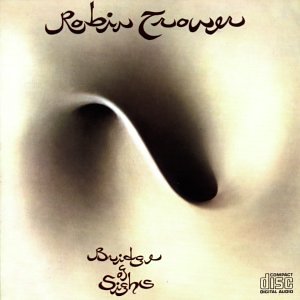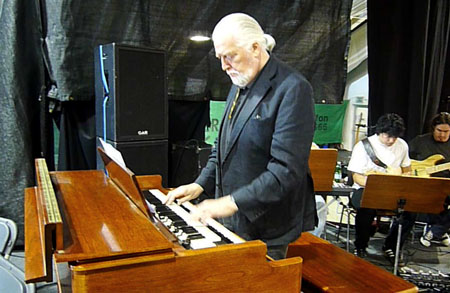Progarchives.com has always (since 2002) relied on banners ads to cover web hosting fees and all.
Please consider supporting us by giving monthly PayPal donations and help keep PA fast-loading and ad-free forever.
/PAlogo_v2.gif) |
|
Post Reply 
|
Page <1 114115116117> |
| Author | |||
Walton Street 
Forum Senior Member 
Joined: November 24 2014 Location: Canada Status: Offline Points: 872 |
 Posted: January 29 2015 at 11:41 Posted: January 29 2015 at 11:41 |
||
yes!! then again I hate all fads ... there's something about mass unoriginality that makes me crazy
|
|||
|
"I know one thing: that I know nothing"
- SpongeBob Socrates |
|||
 |
|||
Dayvenkirq 
Forum Senior Member 

Joined: May 25 2011 Location: Los Angeles, CA Status: Offline Points: 10970 |
 Posted: January 29 2015 at 12:31 Posted: January 29 2015 at 12:31 |
||
|
^ Nothing wrong with e-cigs.
 I have a co-worker who smokes one, and I'm happy for him; it doesn't bother me. He still keeps coming back to actual cigarettes, though, believe it or not. I have a co-worker who smokes one, and I'm happy for him; it doesn't bother me. He still keeps coming back to actual cigarettes, though, believe it or not.Internet and iPhone were "fads", remember?
|
|||
 |
|||
Walton Street 
Forum Senior Member 
Joined: November 24 2014 Location: Canada Status: Offline Points: 872 |
 Posted: January 29 2015 at 12:35 Posted: January 29 2015 at 12:35 |
||
I don't recall anyone considering those to be fads - and I was certainly around for the beginning of both. ipads maybe ..I don't think they will last Planking = fad |
|||
|
"I know one thing: that I know nothing"
- SpongeBob Socrates |
|||
 |
|||
Dayvenkirq 
Forum Senior Member 

Joined: May 25 2011 Location: Los Angeles, CA Status: Offline Points: 10970 |
 Posted: January 29 2015 at 12:39 Posted: January 29 2015 at 12:39 |
||
|
^ So, why would e-cigs be considered just a fad? Aren't they the future?
|
|||
 |
|||
Walton Street 
Forum Senior Member 
Joined: November 24 2014 Location: Canada Status: Offline Points: 872 |
 Posted: January 29 2015 at 12:44 Posted: January 29 2015 at 12:44 |
||
my gut says no .. I think people who never smoked are using them because they're caught up in the technology and the need to look cool .. like why young kids smoke in the first place. plus most places wont allow them .. so they aren't accomplishing anything. I think - as your friend does - they'll just eventually lose interest and either smoke ciggies or quit. we'll meet back here in a year and see if it happens or not
|
|||
|
"I know one thing: that I know nothing"
- SpongeBob Socrates |
|||
 |
|||
HolyMoly 
Special Collaborator 

Retired Admin Joined: April 01 2009 Location: Atlanta Status: Offline Points: 26138 |
 Posted: January 29 2015 at 13:16 Posted: January 29 2015 at 13:16 |
||
So I guess this position defines music as the product of an intentional act. Not sure how sound that is (ha ha unintentional pun), but I might nurse that idea for a bit. |
|||
|
My other avatar is a Porsche
It is easier for a camel to pass through the eye of a needle if it is lightly greased. -Kehlog Albran |
|||
 |
|||
rogerthat 
Prog Reviewer 
Joined: September 03 2006 Location: . Status: Offline Points: 9869 |
 Posted: January 29 2015 at 18:45 Posted: January 29 2015 at 18:45 |
||
|
Well, the composer Ilayaraja said even a dog's bark is music and he has composed nearly 2500 tracks of music, and nearly all of it strictly in the conventional melodic tradition, mind. Maybe the composers, especially a genius like him, can see possibilities in sound that most listeners cannot.
|
|||
 |
|||
Dean 
Special Collaborator 

Retired Admin and Amateur Layabout Joined: May 13 2007 Location: Europe Status: Offline Points: 37575 |
 Posted: January 29 2015 at 19:00 Posted: January 29 2015 at 19:00 |
||
|
If he takes that bark and composes it into a raga then that is music, otherwise it is just a dog barking. Using the dog bark in that way would be objet trouvé in the same vein as a found poem or a Picasso's bicycle seat bull. A ceramic urinal is not art until an artist (in that example Marcel Duchamp) designates it as such.
Ilayaraja may hear music in any repetitive sound, but it is not music in its own right, it is just sound.
|
|||
|
What?
|
|||
 |
|||
timothy leary 
Forum Senior Member 

Joined: December 29 2005 Location: Lilliwaup, Wa. Status: Offline Points: 5319 |
 Posted: January 29 2015 at 19:07 Posted: January 29 2015 at 19:07 |
||
|
What about bird song? Music or sound?
|
|||
 |
|||
LearsFool 
Prog Reviewer 

Joined: November 09 2014 Location: New York Status: Offline Points: 8642 |
 Posted: January 29 2015 at 19:08 Posted: January 29 2015 at 19:08 |
||
|
John Cage had words to say about the whole "What is music?" question. So he composed 4'33" so that he could have a piece of music that is purely whatever random noise just happens during those four and a half minutes.
Food for thought.
|
|||
 |
|||
rogerthat 
Prog Reviewer 
Joined: September 03 2006 Location: . Status: Offline Points: 9869 |
 Posted: January 29 2015 at 22:39 Posted: January 29 2015 at 22:39 |
||
It is a little in between based on his actual application of the thought expressed there. There is a song where he used the sounds of buffalos bellowing, goats bleating and roosters crowing, all as a backdrop to vocals delivered by a singer. Many of these sounds are bent into melodic shape using, I think, synths but some are also used in their pure 'unmusical' form. The point being the momentary interlude of non music is accepted by an audience already prepared by the preceding music as well as visuals of a village simpleton playing with the livestock to accept the intrusion of such sounds. In other words the context decides what the audience perceives as music. This MAY have been what Cage also wanted to establish.
|
|||
 |
|||
Kati 
Forum Senior Member 

Joined: September 10 2010 Location: Earth Status: Offline Points: 6253 |
 Posted: January 30 2015 at 01:02 Posted: January 30 2015 at 01:02 |
||
 |
|||
 |
|||
ExittheLemming 
Forum Senior Member 

Joined: October 19 2007 Location: Penal Colony Status: Offline Points: 11420 |
 Posted: January 30 2015 at 03:51 Posted: January 30 2015 at 03:51 |
||
Although that's not implausible, the conventional wisdom about 4'33 is that it was composed purely to illustrate the 'impossibility of silence'. Cage got the idea after he went into an anechoic chamber expecting to hear nothing, but instead he heard the pumping of his own blood and the normally inaudible sound of his internal organs. |
|||
 |
|||
Dean 
Special Collaborator 

Retired Admin and Amateur Layabout Joined: May 13 2007 Location: Europe Status: Offline Points: 37575 |
 Posted: January 30 2015 at 05:17 Posted: January 30 2015 at 05:17 |
||
I tend to agree with the notion that context is everything, and that is also related to intent and interpretation. All three are required. Found Art, whether that is visual, sonic or literary only becomes Art with the intention of the Artist to create something from it, the context in which it is placed and the interpretation of that by the observer. For example: "If you tie hair into a ponytail or half ponytail with a hair tie, your braid will be easier to handle and turn out a little neater." is a piece of found text that can be arranged into a found poem by breaking down the phrases in the text into a rhythmic pattern: If you tie hair Into a ponytail Or half ponytail With a hair tie, Your braid will be Easier to handle And turn out A little neater. And the Poet can add to, and subtract from, that if they so wish to make it scan or fit a particular meter. As I sit here typing this I can hear the sound of a buzz-saw, it is an ambient sound that is sonorous but atonal and arrhythmic so it is not musical, however I could record it and make it music through intention. I do not even have to record it - just by reading this text you can imagine the sound that I can hear. If I put that sound into a context, for example by observing that it is being operated in a neighbour's garden as he prepares logs for his log burning stove, then it becomes a soundtrack to an activity that has a contextual meaning that exists without you having to physically observe him sawing through tree branches. From this you can imagine the felling of trees and the stacking of cut logs and that creates a mental picture in each of us of the person using the saw, what the saw could look like and even perhaps the stove they are destined for, and this is without you being able to hear the sound that I can hear. Even if I did not put that sound into a context the listener could have created one of their own based upon the various uses a buzz-saw could be put to, the sound itself is enough to create a context. The interpretation of sound (and thus music) draws upon our memories and knowledge and how we interpret it determines our appreciation of it. Composers like Ilayaraja, John Cage, Alvin Luicier and Luc Ferrari who maintain that music is all around us are inviting us to hear what they have heard and either put it into a context they have created or create one of our own, and interpret those sounds within that context. This, I would argue, is what all composers do. Whether you regard electro-acoustic music as music is a matter of definition of what you regard as music, however, because of the involvement of a human in creating something from them they are Art. I take the view that ambient environmental sound and animal "song" are not music because they lack intent, context and interpretation, but as soon as a human takes those sounds and uses them they do become music Art. ~~~~~~~~~~~~~~~~~~~~~~~~~~~~~~~~~~~~~~~~~~~~~~~~~~~~~~~~~~~~~~~~~~~~~~  A few months ago I posted a FB rant on the Quiet Zone carriages on SouthWest Trains - like Iain's comment about Cage's reaction to being in an anechoic chamber (I have experienced that myself, it is disconcerting to say the least) - the concept of a Quiet Zone on a train is self-defeating, they can never be devoid of sound and under those conditions our hearing becomes even more sensitive so that the sound of your fellow passengers breathing becomes a source of annoyance - a Quiet Zone carriage will never be quiet enough.
Edited by Dean - January 30 2015 at 05:30 |
|||
|
What?
|
|||
 |
|||
Dean 
Special Collaborator 

Retired Admin and Amateur Layabout Joined: May 13 2007 Location: Europe Status: Offline Points: 37575 |
 Posted: January 30 2015 at 05:55 Posted: January 30 2015 at 05:55 |
||
I would (and have) argue that is it sound but not music, however, some of it is musical, (for example it is hard to call the sound of rooks and crows as musical). In another thread somewhere I postulated that all human music is based upon a pentatonic scale- that is, music from every culture throughout history shares a common harmonic relationship of tones even though they differ in absolute pitch and tuning. These five notes work well with each other because they are harmonious with each other (i.e., the interaction between them creates beat-notes that are harmonically related) - this relationship is mathematical and predictable (i.e., it is scientific). Our ears interpret this relationship as harmonious and thus musical. A composer and/or musician uses this musical scale to create music, however the scale itself is not music. Some bird-song also exhibits this pentatonic relationship due to the same "science" - two tones played together create beat-tones that are mathematically related to the original two. (sin(X) + sin (Y) = 2(sin((X+Y)÷2) × cos((X-Y)÷2))). Therefore to our ears this bird-song sounds musical because it is a sequence of harmonic tones that resembles the music created by a musician, but it is not music.
|
|||
|
What?
|
|||
 |
|||
ExittheLemming 
Forum Senior Member 

Joined: October 19 2007 Location: Penal Colony Status: Offline Points: 11420 |
 Posted: January 30 2015 at 06:18 Posted: January 30 2015 at 06:18 |
||
As is the norm, a very informative post. Please don't think I'm splitting hairs but when you say 'harmonious' do you mean 'aesthetically appealing' to a human listener due to the mathematical basis of the intervals deployed? i.e. say 3rds, 5ths and octaves which don't produce any meddlesome waveform distortions. Or, do we consider those relationships that can be defined as 'demonstrable dissonance' based on beat note intervals that don't qualify as 'harmonious' might constitute erm.. lesser music? |
|||
 |
|||
Dean 
Special Collaborator 

Retired Admin and Amateur Layabout Joined: May 13 2007 Location: Europe Status: Offline Points: 37575 |
 Posted: January 30 2015 at 07:12 Posted: January 30 2015 at 07:12 |
||
'Harmonious' is by definition 'pleasant sounding' so it is what is aesthetically pleasing to our ears, the mathematical relationship is an after-the-event analysis of why that is so. This harmonic relationship was derived empirically by what sounded pleasant and the mathematics are merely the scientific explanation. I have speculated before that this is physiological due to how our ears convert acoustic waves into electrical signals to send to the brain for interpretation. Notes that are not of this simple sequence are not necessarily dissonant, they can be consonant (i.e. imperfect consonance). With regard to 'demonstrable dissonance', I would not use lesser/greater (or even better/worse) but just different, or if pushed, more complicated. Harmonious is not just two notes played together it also relates to notes played in sequence, so there is a time/memory dimension involved. Dissonance works in this sequential time dimension too, as dissonant tones are a natural consequence of key changes (for example) and it is how this dissonance is resolved over time that affects our aesthetic appreciation of the note sequence or phrase. Dissonance can be used well or it can be used poorly, but used well it adds interest and tension, in this respect dissonance is seen as transitional (towards a resolution).
|
|||
|
What?
|
|||
 |
|||
rogerthat 
Prog Reviewer 
Joined: September 03 2006 Location: . Status: Offline Points: 9869 |
 Posted: January 30 2015 at 08:25 Posted: January 30 2015 at 08:25 |
||
Great comment and I completely agree. I do not think Ilayaraja claimed the pure sound of a dog's bark was music (i.e. without being fitted into a composition in some manner) but that he was too parsimonious with words to elaborate on the bald statement.
|
|||
 |
|||
Jim Garten 
Special Collaborator 

Retired Admin & Razor Guru Joined: February 02 2004 Location: South England Status: Offline Points: 14693 |
 Posted: January 30 2015 at 09:49 Posted: January 30 2015 at 09:49 |
||
Ah yes - Elephant Racing! You forgot the last one of the unholy trinity - an ancient Volvo with a huge caravan in the outside lane doing 56.00025 mph trying to overtake them both    
|
|||

Jon Lord 1941 - 2012 |
|||
 |
|||
Walton Street 
Forum Senior Member 
Joined: November 24 2014 Location: Canada Status: Offline Points: 872 |
 Posted: February 04 2015 at 08:40 Posted: February 04 2015 at 08:40 |
||
|
I would have bought lunch for the guy in the truck
|
|||
|
"I know one thing: that I know nothing"
- SpongeBob Socrates |
|||
 |
|||
Post Reply 
|
Page <1 114115116117> |
| Forum Jump | Forum Permissions  You cannot post new topics in this forum You cannot reply to topics in this forum You cannot delete your posts in this forum You cannot edit your posts in this forum You cannot create polls in this forum You cannot vote in polls in this forum |